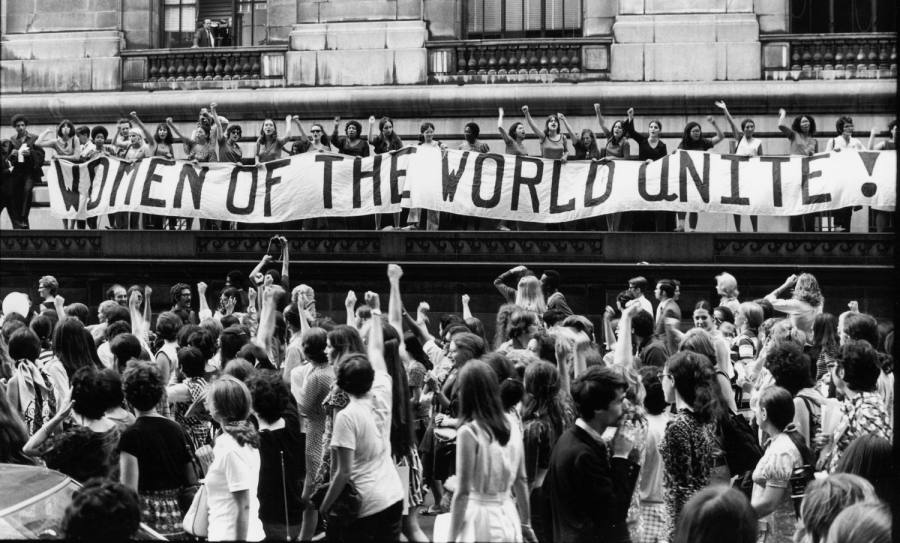Women’s History Month
March commemorates Women’s History Month to celebrate how female figures have changed the world.
March 14, 2021
The month of March commemorates Women’s History Month across the globe; the period is dedicated to celebrating female figures and their achievements that changed society. This year’s Women’s History Month theme is “Valiant Women of the Vote: Refusing to Be Silenced” to celebrate women’s suffrage, and this theme was extended from 2020’s theme due to many events being canceled last year.
The Education Task Force of Sonoma County California Commission on the Status of Women planned “Women’s History Week” in 1978. The national celebration originated in 1981 when Congress passed Pub. L. 97-98, which requested that the President dedicated the week of March 8, 1982, to be “Women’s History Week.” The week of March 8 was chosen due to International Women’s Day being on March 8 (National Women’s History Month).
Originally, Women’s History Month began as a local celebration in Santa Rosa, California. Between 1988 and 1994, Congress requested the President to dedicate March as Women’s History Month (Women’s History Month).
There are countless women that shaped society, but one particularly significant female figure is Jane Austen. Austen is a world-renowned author of witty classics such as Pride and Prejudice and Sense and Sensibility, written when she was only in her teens. Her stories questioned women’s role in society and consequently empowered female readers (Marie Claire Australia).
For Natalie Neal (10), it is difficult for her to choose only one woman that inspires her, but she mentions that her cousin Ella is an inspiration to her because “she inspired me to love who I am, to stand up for myself, and to get my life together.”
Maya Angelou is a poet, singer, memoirist, and civil rights activist that wrote the memoir I Know Why the Caged Bird Sings. This memoir was the first nonfiction best-seller by an African American woman. Her memoir is about her growing up in Arkansas, where she faced racism and discrimination that prompted her discussion of identity and literacy (Marie Claire Australia).
Marie Curie is a physicist and scientist who discovered two elements and the portable x-ray machine. According to a BBC poll on women who changed the world, Marie Curies placed first as the most influential woman of all time (The Telegraph). Curie was the first person to win two separate Nobel prizes: chemistry and another for physics.
Women’s History Month is a significant time to acknowledge women’s impact worldwide and across generations. Women have significantly reformed society. Whether they were acts of equality such as suffragist Alice Paul or leading women empowerment movements like Gloria Steinem, referred to as the “Mother of Feminism,” all of these acts by women should not be forgotten.




































Kylie de Best • Apr 23, 2021 at 12:53 PM
This is such an informative article about Women’s History Month. Thanks for sharing this and I am sure many will find this useful.
Sharon Sun • Apr 10, 2021 at 5:43 PM
Great article Anita! I really liked Natalie’s personal view on who inspires her the most! For me, it would have to be my sister, but I’m definitely still so proud of all the other women in history who have made a significant impact to progress and society!
KAYDEN MANDLEY • Mar 31, 2021 at 12:03 PM
Awesome article, Anita! Although it is unfortunate that women are still struggling to have equality, it’s important we appreciate and recognize those who have helped women progress in today’s society.
Katelyn Ruggles • Mar 21, 2021 at 7:25 PM
This article is such a great way to cover an important month for women throughout the world. It makes me so inspired to see how women have fought for equal rights throughout history, and I love how this month highlights the amazing women that fought for them!
Fiona Salisbury • Mar 19, 2021 at 8:32 PM
I love that you were able to highlight so many women both in history and in current times. Thank you for writing this article! Good job!
Paige Reddick • Mar 19, 2021 at 1:41 PM
This is an amazing article, Anita! I am so happy to be able to celebrate all the incredible women currently in my life and those who have come before me. While progress is still needed to secure equality, we have made incredible strides!
Emily Eslao • Mar 15, 2021 at 11:19 PM
Thank you for writing this article! It’s always important to take time to look back and acknowledge everything that’s led up to the point of progress we’re at now. For sure we haven’t reached true equality, but your writing id a great reminder of what we should be proud of.